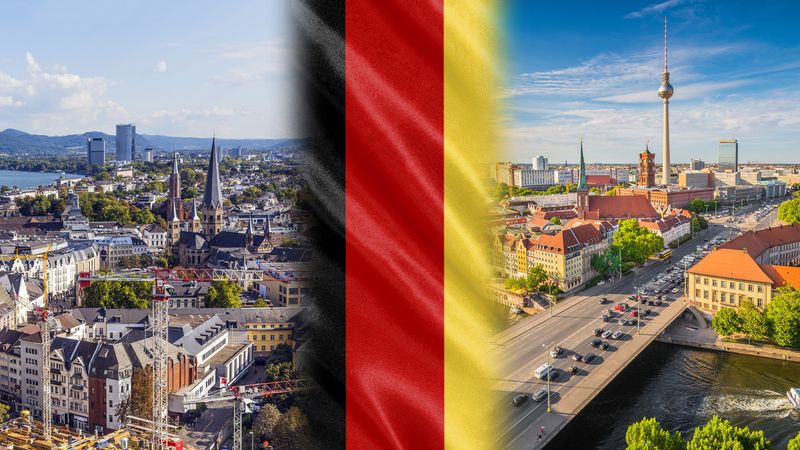The nexus between the Bahá’í teachings and the pressing issues of religion and refugees in Germany warrants a profound exploration, underscoring the potential for coexistence in an increasingly polarized world. As Germany grapples with the complexities of integrating diverse religious communities amidst a significant influx of refugees, the principles espoused by the Bahá’í Faith offer a transcendent framework for fostering unity and understanding. The teachings of Bahá’u’lláh, the founder of the Bahá’í Faith, illuminate pathways toward harmonious coexistence, emphasizing the oneness of humanity, the importance of justice, and the role of service to humanity.
First and foremost, the Bahá’í Faith articulates a vision of the oneness of humanity as a central tenet. This principle asserts that all human beings belong to a single family, irrespective of nationality, ethnicity, or religious affiliation. In the context of Germany’s demographic evolution, which has seen a substantial influx of refugees from various cultures and backgrounds, this idea bears particular significance. It invites both refugees and host communities to transcend preconceived biases and embrace each other as integral parts of the human tapestry. Initiatives fostering interfaith dialogues, intercultural exchanges, and community-building endeavors are essential manifestations of this principle. Engaging in shared experiences can cultivate empathy and understanding, dispelling misconceptions that often arise in times of strife.
Moreover, one of the predominant Bahá’í teachings is the imperative of justice. Justice is not merely a legalistic concept but a moral compass guiding human interactions. In Germany, where conversations around the treatment of refugees can often polarize communities, the Bahá’í perspective emphasizes equitable treatment and access to opportunities for all individuals. This embodies not only the legal necessity of safeguarding refugee rights but also the ethical responsibility to extend compassion and support. Educational programs integrating refugees into society, coupled with advocacy for policies that promote inclusivity and justice, align seamlessly with Bahá’í principles, thereby fostering societal cohesion.
Furthermore, the call to service is intrinsic to the Bahá’í teachings and provides a practical framework for individuals seeking to contribute positively to the refugee crisis in Germany. Service is viewed as a profound expression of one’s faith and humanity. This notion can inspire community members, including both established residents and newcomers, to partake in volunteer efforts aimed at aiding refugees. Such initiatives could encompass language training sessions, cultural orientation programs, and supportive counseling. Empowering refugees to navigate their new realities not only aids their integration but also bolsters the sense of belonging within the broader societal context.
Additionally, the Bahá’í concept of the “elimination of prejudice” is critical in addressing the challenges faced by refugees in Germany. Prejudices can manifest in various forms—cultural, ethnic, religious—and can serve as formidable barriers to acceptance and integration. In fostering an atmosphere where respect for diversity prevails, both refugees and native citizens can work toward dismantling these prejudices. This entails concerted efforts in education, awareness-raising campaigns, and community dialogues aimed at confronting stereotypes. Such endeavors can evoke a deeper appreciation for the rich contributions that diverse backgrounds bring to society.
Nevertheless, while the Bahá’í teachings offer an optimistic lens, the realities of the refugee experience can be steeped in trials and tribulations. The traumas faced by those fleeing conflict or persecution are profound and often lead to psychological and emotional scars. The Bahá’í community in Germany can thus play a pivotal role in providing compassionate support through counseling services, mental health initiatives, and holistic healing programs. Recognizing the humanity in each individual—regardless of their past—aligns with the Bahá’í commitment to universal compassion and restorative justice.
Sustainability is another important aspect of governance echoed in Bahá’í principles that pertains to Germany’s approach to refugee integration. The challenges posed by climate change and resource scarcity necessitate a coherent strategy that encompasses both humanitarian and environmental considerations. The Bahá’í approach advocates for comprehensive policies that not only address the immediate needs of refugees but also sustainably integrate them into the socioeconomic fabric of society. Social entrepreneurship efforts, which can empower refugees by providing them with economic opportunities, represent a practical manifestation of this principle.
Lastly, the overarching narrative of the Bahá’í Faith encapsulates the idea of global citizenship. In a world increasingly characterized by nationalism, the Bahá’í teachings advocate for a commitment to the collective welfare of humanity. This perspective provides a refreshing outlook for Germany, as it navigates the complexities of its identity amid demographic changes. Refugees, as contributors to the social, cultural, and economic landscape of their host country, embody the essence of global citizenship, enriching the German identity while encouraging a collective recognition of shared responsibilities.
In conclusion, the interplay of Bahá’í teachings with the realities of religion and refugees in Germany illustrates a profound pathway toward coexistence. By prioritizing unity, justice, service, and the elimination of prejudice, Bahá’í principles offer a robust framework for fostering an inclusive society. As the world continues to grapple with the implications of forced migration, the lessons drawn from the Bahá’í Faith can serve as a guiding light, illuminating the path towards a shared future defined by compassion and togetherness. Each stakeholder—governments, community leaders, and individuals—has a role to play in this journey, heralding a new era of coexistence propelled by understanding and mutual respect.
